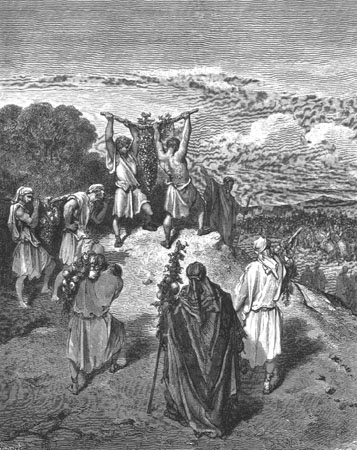More from Luther’s Sermon –
Sermon for the Third Sunday before Lent; 1 Corinthians 9:24-27; 10:1-5
Paul cites a terrible example from Scripture to prove that not all obtain the prize who run. There were about six hundred thousand of them, all of whom walked in the way of God and enjoyed his word and his confidence so completely as to be protected under the cloud and miraculously to pass through the sea; yet among the vast number who ran at that time only two, Joshua and Caleb, obtained the prize. They alone of all that multitude reached the promised land.
Later on in the chapter (verses 11-12) Paul explains this fact, saying: “Now these things happened unto them by way of example; and they were written for our admonition . . . wherefore let him that thinketh he standeth take heed lest he fall.” The design of these dealings of God with Israel is to terrify the pride, false wisdom and self-will; to deter men from despising their fellows and from seeking to make the Word of God minister to their own honor or profit in preference to the honor and profit of others. The intent is to have each individual put himself on an equality with others, each to bear with his fellow, the weak enduring the strong, and so on, as enjoined in the four chapters.
How many great and noble men may have been among the six hundred thousand, men to whom we would have been unworthy to hand a cup of water! They included the twelve princes of the twelve tribes, one of whom, Nahshon, Matthew (ch. 1, 4) numbers in the holy lineage of Christ. There were also the seventy elders who shared in the spirit of Moses, Eldad and Medad in particular (Num 11, 27), and all the other great men aside from the faction of Korah. All these, mark you, strove in the race. They did and suffered much. They witnessed many miracles of God. They aided in erecting a grand tabernacle and in instituting divine worship. They were full of good works. Yet they failed, and died in the wilderness. Who is so daring and haughty he will not be restrained and humbled by so remarkable an example of divine judgment? Well may it be said, “Let him that . . . standeth take heed lest he fall.”


